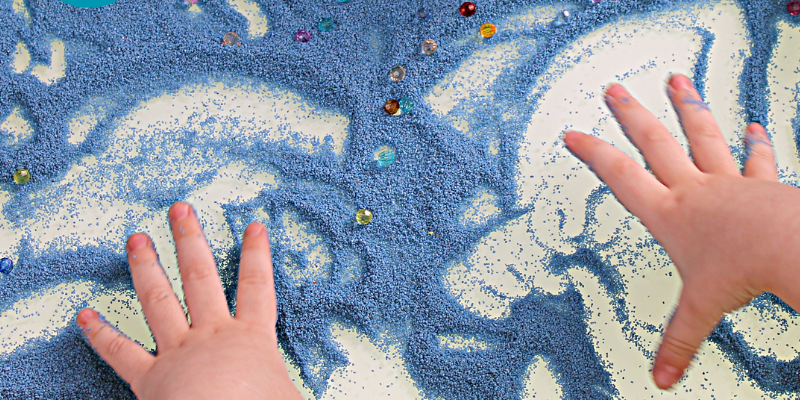Navigating the World of Autism Therapy in South Florida can be daunting, especially when finding the right resources for your child.
South Florida is a region known for its diverse healthcare options, numerous therapies are available tailored to meet the needs of children with autism.
This guide will explore various aspects of autism therapy in South Florida, providing valuable insights for families seeking support.
Understanding Autism Therapy
Autism therapy involves a variety of interventions aimed at addressing the specific challenges faced by children on the autism spectrum.
These therapies focus on enhancing communication, social skills, and adaptive behaviors, ultimately striving to help children gain greater independence and improve their quality of life.
Different therapies, such as Applied Behavior Analysis (ABA), speech therapy, and occupational therapy, are often combined to create a comprehensive treatment plan tailored to each child’s unique needs.
Understanding the options available is crucial for selecting the most effective approach.
Techniques and strategies are constantly evolving, making it essential for caregivers to stay informed about the latest developments in autism therapy.
Why South Florida Is Ideal for Autism Therapy
South Florida stands out as a prime location for autism therapy due to its high prevalence of autism spectrum disorder (ASD) diagnoses.
This concentration has fostered a robust network of services and professionals specializing in autism care, making it easier for families to access the support they need.
The region boasts a wide array of specialized clinics, schools, and in-home therapy services, each designed to cater to the unique needs of children with autism.
Many of these facilities employ experienced professionals trained in the latest therapeutic techniques, ensuring that your child receives top-notch care.

Additionally, South Florida is known for its strong sense of community, which extends to families navigating the complexities of autism therapy.
Support groups, workshops, and social events are abundant, providing invaluable opportunities for parents to connect, share experiences, and gain insights.
Moreover, South Florida’s diverse cultural landscape offers a rich environment for children to develop social skills and adaptability.
This cultural richness, combined with a strong healthcare infrastructure, makes the region particularly conducive to effective autism therapy.
The area’s focus on early intervention and comprehensive care further enhances the quality of available services, making it an ideal place for families seeking the best outcomes for their children.
In-Home Autism Therapy Services
In-home autism therapy services offer a unique and personalized approach to treatment by bringing therapeutic interventions directly into the child’s living environment.
This method can be particularly effective for children who experience anxiety or discomfort in unfamiliar settings.
By working within the home, therapists can better understand the child’s daily routines and tailor interventions to fit naturally into their lives.
In-home therapy often includes a range of services such as Applied Behavior Analysis (ABA), speech therapy, and occupational therapy, all designed to address specific areas of need.
One of the key benefits of in-home therapy is the ability to involve the entire family in the therapeutic process.
Parents and siblings can observe and participate in sessions, gaining valuable skills and strategies to support the child’s development.
This collaborative approach ensures that therapy techniques are consistently applied, leading to more significant progress.
Additionally, in-home services can be more flexible in scheduling, allowing for therapy sessions to occur at times that are most convenient for the family.
This flexibility can be crucial for maintaining a consistent therapy routine without disrupting other important activities or commitments.
In South Florida, numerous providers specialize in delivering high-quality in-home autism therapy, offering families the support they need in a comfortable and familiar setting.
School-Based Autism Therapy in South Florida
School-based autism therapy plays a pivotal role in a child’s developmental and educational journey.
Autism therapy in South Florida includes hundreds of specialized programs to support students on the autism spectrum.

You can find great programs for autism therapy in Homestead, Miami, or Doral.
These programs typically integrate a range of therapeutic services into the school day, such as speech therapy, occupational therapy, and social skills training.
The aim is to create a cohesive support system that addresses both academic and behavioral needs.
One of the primary tools used in school-based therapy is the Individualized Education Plan (IEP).
An IEP is a customized plan developed in collaboration with teachers, therapists, and parents to set specific, measurable goals tailored to the child’s unique needs.
This ensures that interventions are targeted and progress is continuously monitored.
Moreover, schools in South Florida often employ multidisciplinary teams, including special education teachers, psychologists, and behavioral specialists.
These professionals work together to provide a comprehensive support system, fostering an inclusive learning environment.
The collaboration between educators and therapists enables a more holistic approach to a child’s development, ensuring that therapy techniques are reinforced throughout the school day.
Additionally, schools often offer resources such as sensory rooms and adaptive technology to enhance the learning experience.
These tools can help children with autism better manage sensory overload and improve their focus and engagement in the classroom.
Clinical Autism Therapy Options
Clinical autism therapy options in South Florida offer a structured and professional environment tailored to meet the needs of children on the autism spectrum.
These clinical settings are often equipped with state-of-the-art facilities and resources, ensuring that children receive high-quality, evidence-based care.
Many clinics in the region specialize in a range of therapeutic services, including ABA therapy in Miami, behavioral therapy in Fort Lauderdale, speech and language therapy, and occupational therapy.
Behavioral therapy is commonly utilized in clinical settings to address specific behavioral challenges and promote positive behaviors.
Speech and language therapy focuses on enhancing communication skills and helping children develop both verbal and non-verbal communication methods.
Occupational therapy aims to improve fine motor skills, sensory integration, and daily living activities, promoting greater independence.
Autism Therapy in South Florida often includes multidisciplinary teams, including licensed therapists, psychologists, and other specialists who collaborate to create personalized treatment plans.
This collaborative approach ensures that all aspects of a child’s development are addressed comprehensively.
Additionally, these clinics may offer specialized programs for different age groups, providing tailored support from early childhood through adolescence.
Many of these clinical settings also incorporate the latest technological advancements, such as augmentative and alternative communication (AAC) devices and virtual reality tools, to enhance the therapeutic experience.
This integration of technology can provide innovative ways to engage children and track their progress more effectively.
Autism Therapy in South Florida: Selecting the Right Provider
Selecting a therapy provider is an essential step in ensuring your child receives the best possible care.
Begin by verifying the credentials and certifications of potential providers to ensure they meet professional standards.
Experience is equally important; look for providers who have a proven track record working with children on the autism spectrum.
Treatment philosophy and approach should also align with your family’s values and your child’s specific needs.
It can be helpful to ask about the types of therapies offered, the involvement of parents in the treatment process, and how progress is tracked and communicated.
Additionally, visiting the facility can provide a sense of the environment and resources available.
Many South Florida providers offer consultations or trial sessions, allowing you to gauge compatibility before committing.
Engaging with the local autism community for recommendations can also provide valuable insights.
Financial Considerations
Autism therapy in South Florida can be costly, making it crucial to explore all financial avenues available.
Begin by reviewing your health insurance policy to determine what therapies and services are covered.
Many insurance plans now offer benefits for autism treatment, but coverage can vary significantly.
It’s also beneficial to consult with your employer’s HR department for any additional resources or benefits that may be available.

In addition to insurance, consider state and federal assistance programs such as Medicaid waivers and grants specifically designed to support children with autism.
South Florida has various non-profit organizations and local charities that provide financial aid or subsidized therapy services for families in need.
Flexible Spending Accounts (FSAs) and Health Savings Accounts (HSAs) are other valuable resources.
These accounts allow you to set aside pre-tax dollars for medical expenses, including autism therapy, which can help reduce the overall cost burden.
Many therapy providers in South Florida offer sliding scale fees based on income, or payment plans to make services more affordable.
Don’t hesitate to discuss financial options directly with providers; they are often willing to work with families to ensure that children receive the necessary care without causing financial strain.
Crowdfunding platforms and community fundraisers can also be effective ways to garner financial support from friends, family, and the broader community.
Exploring all these options can make autism therapy more financially manageable.
Community Support and Resources
South Florida is home to a wealth of community resources designed to support families with children on the autism spectrum.
Local non-profits and advocacy groups, such as the Autism Society of Florida and the Dan Marino Foundation, offer a variety of programs and services, including workshops, training sessions, and family events aimed at fostering a supportive community.
Many organizations provide educational resources and guidance on navigating the complexities of autism therapy.
These resources can help parents better understand their child’s needs and find appropriate therapeutic interventions.
Parent training programs are also available, equipping families with strategies to support their child’s development at home and in other settings.
Support groups, both online and in-person, offer a platform for parents to share experiences, advice, and emotional support.
These groups can be invaluable in creating a sense of belonging and understanding among families facing similar challenges.
Regular social events and activities organized by community groups provide opportunities for children with autism to develop social skills in a welcoming environment.
Additionally, local libraries, community centers, and recreational facilities often host inclusive programs and activities tailored for children with autism, promoting social interaction and skill-building in a fun and engaging manner.
Access to a strong network of community resources can significantly enhance the therapy experience and overall quality of life for both children and their families in South Florida.
Future Trends in Autism Therapy
Advances in Autism Therapy in South Florida are continually reshaping the landscape of care in the region, offering new hope and improved outcomes for children on the autism spectrum.
One significant trend is the increased use of technology, such as virtual reality and augmented reality tools, to create immersive and engaging therapeutic environments.
These technologies can enhance social skills, reduce anxiety, and provide unique ways to practice daily life scenarios.
Additionally, telehealth services have gained prominence, offering greater accessibility and flexibility for families who may find it challenging to attend in-person sessions.
Another promising development is the integration of genetic research to better understand the biological underpinnings of autism, potentially leading to more personalized and effective treatment plans.
Social robotics is also emerging as a tool to help children develop social and communication skills through interactive play.
These innovative approaches are set to revolutionize autism therapy, making it more adaptable and responsive to each child’s individual needs.
Staying updated on these trends can empower families to seek out cutting-edge treatments that align with their goals and aspirations for their child’s development.

